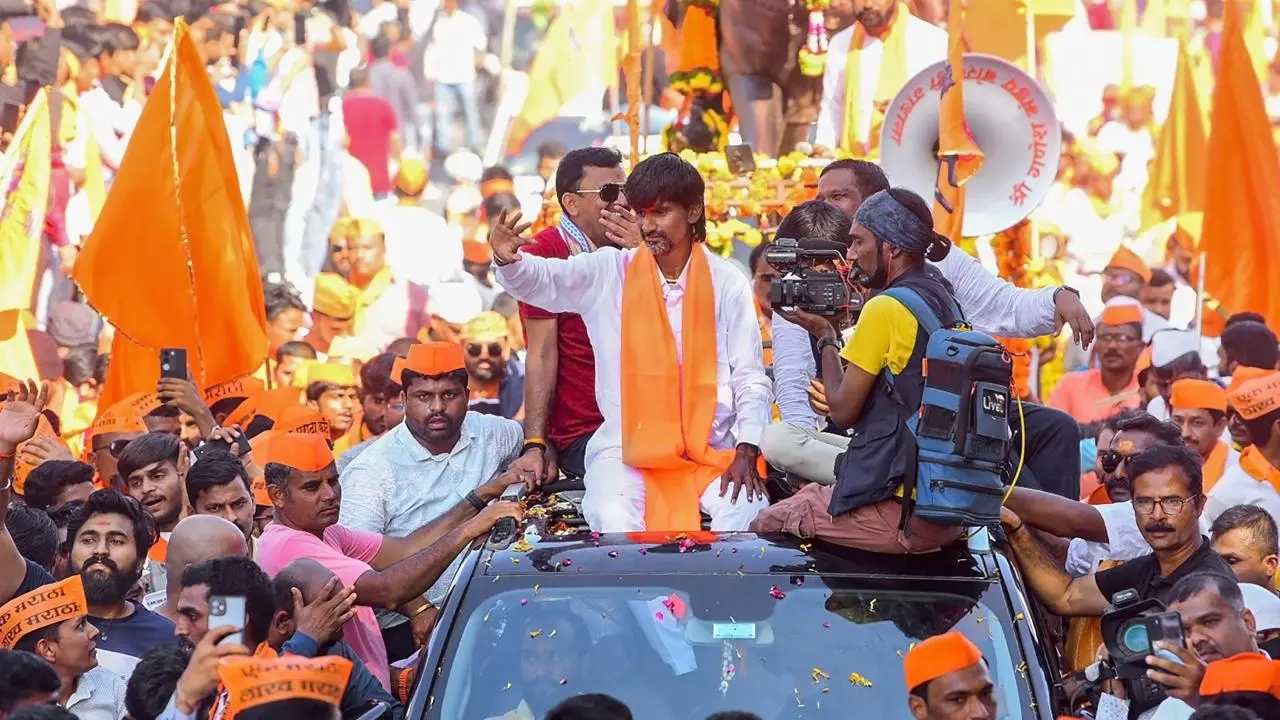Manoj Jaranje, a prominent figure from Maharashtra, has played a pivotal role in advocating for Maratha reservation and addressing the socio-economic challenges faced by the Maratha community. His journey is marked by resilience, activism, and a deep commitment to social justice. In this essay, we will delve into Manoj Jaranje’s background, his contributions to the Maratha reservation movement, and the struggles encountered in this endeavor.
Background and Early Life:
Manoj Jaranje was born and raised in Maharashtra, a state known for its rich cultural heritage and historical significance in India. Growing up in a rural setting, Jaranje witnessed firsthand the socio-economic disparities prevalent in Maratha communities. Despite the Marathas’ historical legacy of valor and leadership, many individuals within the community faced challenges such as lack of access to quality education, limited job opportunities, and inadequate representation in various sectors.
Jaranje’s early experiences and exposure to social issues shaped his worldview and instilled in him a sense of responsibility towards uplifting his community. He recognized the importance of education and empowerment as catalysts for social change, leading him to actively engage in grassroots activism and advocacy from a young age.
Advocacy for Maratha Reservation:
The demand for reservation for the Maratha community in educational institutions and government jobs gained significant traction in Maharashtra during the late 1990s and early 2000s. Maratha organizations and leaders like Manoj Jaranje spearheaded this movement, highlighting the need for affirmative action to address historical injustices and socio-economic disparities faced by the community.
- Representation and Empowerment: Jaranje emphasized the importance of representation at various levels of governance and public institutions. He argued that reservation policies were essential not just for individual empowerment but also for ensuring a more inclusive and equitable society.
- Data-driven Advocacy: Jaranje and his associates conducted extensive research and collected data to substantiate the need for Maratha reservation based on socio-economic indicators, educational access, and employment patterns. This data-driven approach strengthened their advocacy efforts and provided a factual basis for policy discussions.
- Legal and Policy Engagement: Recognizing the complexities of reservation policies within the framework of Indian constitutional provisions, Jaranje actively engaged with legal experts, policy analysts, and government officials. He participated in dialogues, seminars, and consultations to explore viable and sustainable solutions while navigating legal frameworks and administrative processes.
- Community Mobilization: Jaranje’s leadership resonated with Maratha youth and grassroots activists across Maharashtra. He organized rallies, protests, and awareness campaigns to mobilize support and amplify the voices of those advocating for Maratha reservation. His inclusive approach encouraged dialogue and collaboration within the community and with other stakeholders.
Struggles and Challenges Faced:
The journey towards securing Maratha reservation has been fraught with challenges, debates, and legal complexities. Some of the key struggles encountered include:
- Legal Hurdles: The constitutional validity and implementation of reservation policies have been subject to judicial scrutiny and legal challenges. Balancing the principles of equality, meritocracy, and affirmative action within a diverse society poses inherent challenges that require nuanced legal interpretations and policy frameworks.
- Inter-community Dynamics: Reservation policies in India often intersect with caste identities, historical grievances, and inter-community relations. Balancing the aspirations of different communities while fostering social cohesion and mutual respect remains a delicate task that necessitates dialogue, empathy, and inclusive decision-making.
- Policy Implementation: Even after the announcement of reservation quotas, effective implementation, transparency, and accountability mechanisms are crucial for ensuring that the benefits reach deserving individuals within the Maratha community. Addressing administrative bottlenecks, monitoring outcomes, and mitigating potential misuse are ongoing challenges that require sustained efforts.
- Public Perception and Debates: The debate around reservation policies often generates diverse opinions and perspectives within society. Engaging in constructive dialogue, dispelling misconceptions, and building consensus based on data-driven evidence are essential aspects of navigating these complex public discourses.
Impact and Way Forward:
Despite the challenges, Manoj Jaranje’s advocacy and the collective efforts of Maratha leaders and organizations have yielded significant progress in highlighting the socio-economic issues faced by the community. The inclusion of Marathas in the OBC (Other Backward Classes) category for reservation purposes in Maharashtra reflects a step towards addressing historical inequalities and promoting social justice.
Moving forward, sustained efforts are needed to ensure that reservation policies are implemented effectively, transparently, and in a manner that promotes merit-based opportunities while addressing systemic barriers. Capacity building, skill development initiatives, and inclusive growth strategies can complement reservation policies to empower marginalized communities and foster holistic socio-economic development.
Manoj Jaranje’s journey exemplifies the transformative potential of grassroots activism, community mobilization, and strategic advocacy in driving positive change. By upholding principles of inclusivity, equity, and dialogue, stakeholders can work collaboratively towards a more just and equitable society where every individual has the opportunity to thrive based on their abilities and aspirations, irrespective of their background or identity.






